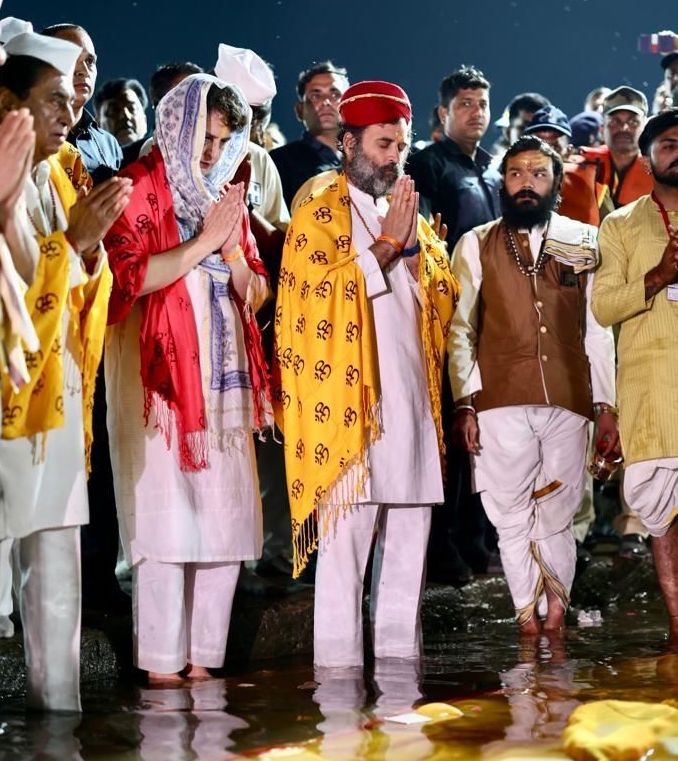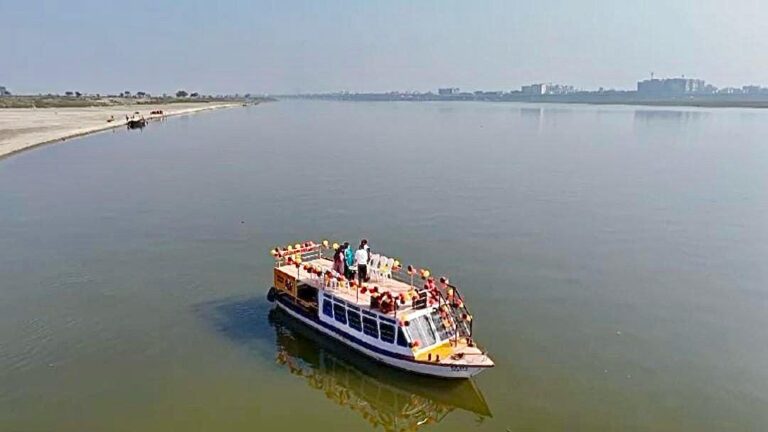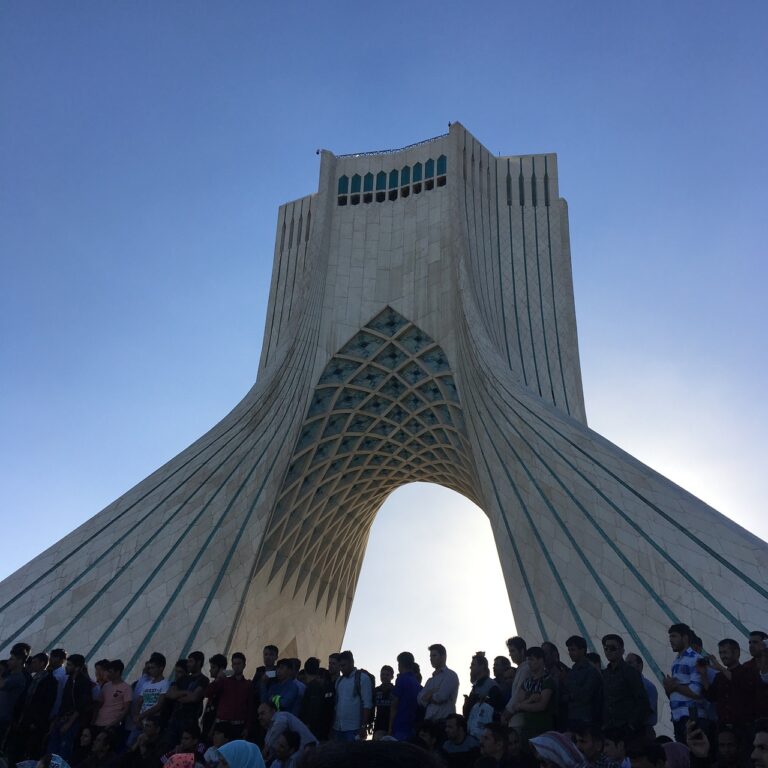
Rahul and Priyanka Gandhi performing Narmada Arti in Onkareshwar on November 25, 2022
 By G Krishna Mohan Rao*
By G Krishna Mohan Rao*
With the campaigning for the second and final phase of polling for the Gujarat Assembly coming to an end, the Bharatiya Janata Party (BJP) seems to be sitting comfortably, even as the Congress Party and the Aam Aadmi Party (AAP) are intensely trying to make the last ditch efforts to woo the voters.
The high-voltage campaigning for the second phase of elections in 93 of the total 182 seats in Gujarat came to an end on Saturday, December 3, and the polling is scheduled for Monday, December 5, 2022. The first phase of voting for 89 seats in Saurashtra, Kutch and south Gujarat was held on December 1. The 93 assembly segments that are part of the second phase of polling are spread across 14 districts of north and central Gujarat, including Ahmedabad, Vadodara and Gandhinagar.
This is an election most pollsters predict that the BJP is likely to come back to power in Prime Minister Narendra Modi’s home state. Modi being the Chief Minister of Gujarat for 12 and half years, obviously, high stakes are involved to perform better in his old playground. Both, the Prime minister and the Home Minister, Amit Shah, campaigned in the state relentlessly to ensure as many seats as possible. No doubt, Modi has become synonymous with Gujarati Asmita (pride in identity). The PM is registered as a voter in the Sabarmati assembly seat and will cast his vote on Monday.
Before addressing the last election rally in Ahmedabad on Friday, December 2, Narendra Modi led a roadshow in the city with massive crowds thronging both sides of the road. Modi said that they would be voting to lay the foundation of how Gujarat will be after 25 years when India celebrates 100 years of freedom. At the same, on Friday, Home Minister Shah also held rallies and road shows in Mehsana, Vadodara and Vijapur and exuded confidence that the BJP was heading for a grand victory in the state under Modi’s leadership.
As some political analysts have said that since the BJP has been ruling the state for the last 27 years, people want a change in Gujarat, but do not wish to weaken Narendra Modi in any manner. They realise that if the BJP loses in Gujarat, it would have direct ramifications for the big two— Modi and Shah—in the party. So this possibility is completely ruled out by the pollsters and they feel that the BJP may get to a very respectable score there. The debate is about how many more seats it will win, compared to 2017. Also, whether its tally would surpass that of the highest ever of 149 seats, which the Congress led by Madhavsinh Solanki achieved in 1985.
For the last 25 years, it has become an ambition for the BJP leadership, to break the Madhavsingh Solanki record of 149 seats but scored much below their expectations. The BJP won 127 in 2002, 117 in 2007, 115 in 2012, and 99 in 2017…. While the Congress Party went from 51 in 2002, to 57 in 2007, 61 in 2012 and 77 in 2017, its highest tally since 1990. It is said that the entry of the AAP, this time, may disturb that pattern.
Needless to say that the AAP’s gains in Gujarat, like in many other states, would be at the cost of the Congress Party. The Gandhis have kept away from the Gujarat polls. Some Congressmen said that if the fight is between Modi and Rahul, then Rahul would be at a disadvantage. That is why Rahul held only two public meetings. Further, a large number of Congress supporters admit that by not campaigning in Gujarat, the Gandhis have vacated the space for the AAP, which is likely cut into its vote bank.
For Kejriwal, a victory in Delhi municipal polls and some inroads in Gujarat would help him to join the ranks of leaders who are hoping to challenge Modi in 2024. Political analysts opine that a decent showing in Gujarat will help bolster its ambition to replace the Congress in the State as the prime challenger to the BJP. Since Rahul was busy with the ‘Bharat Jodo Yatra”, pollsters are predicting that rather than a bipolar battle between BJP-Congress, there is a triangular contest which is taking place now.
The loser appears to be the Congress, with pre-poll predictions revealing that the AAP would eat into the party’s sizeable chunk of votes rather than grab the BJP’s share. Such a split in the anti-BJP vote will cement the incumbent’s position. That is why there is a special buzz to the Gujarat election this time.
To sum up, more than any other leader, the outcome of the assembly election in Gujarat and the results of the Delhi Municipal elections would impact the AAP supremo and Delhi Chief Minister Arvind Kejriwal who is expecting his party to do well in Gujarat but appears determined to win municipal polls in Delhi.
However, if the AAP has to win in Delhi municipal elections, it would largely depend on how the Congress Party performs. If the Congress does reasonably well, the BJP shall get the advantage even though there is a huge anti-incumbency factor against the BJP in Delhi. But a divided anti-BJP vote shall suit the BJP more than anybody else. In Delhi, the Congress is heavily banking on minority votes. There are reports that Muslims in particular are very unhappy with the AAP and may vote for the Congress.
*Senior journalist





